“No child in the world is responsible for who his parents are or under which circumstances he had his birth,” Professor Stefan Schennach told me. It is clearly a very firmly held conviction. We were talking about his report, which was overwhelmingly approved by the Parliamentary Assembly of the Council of Europe in January, 2020. It concerned international obligations regarding the repatriation of children from war and conflict zones, covered by Article 8 of the European Convention on Human Rights, which states that “Everyone has the right to respect for his private and family life, his home and his correspondence”.
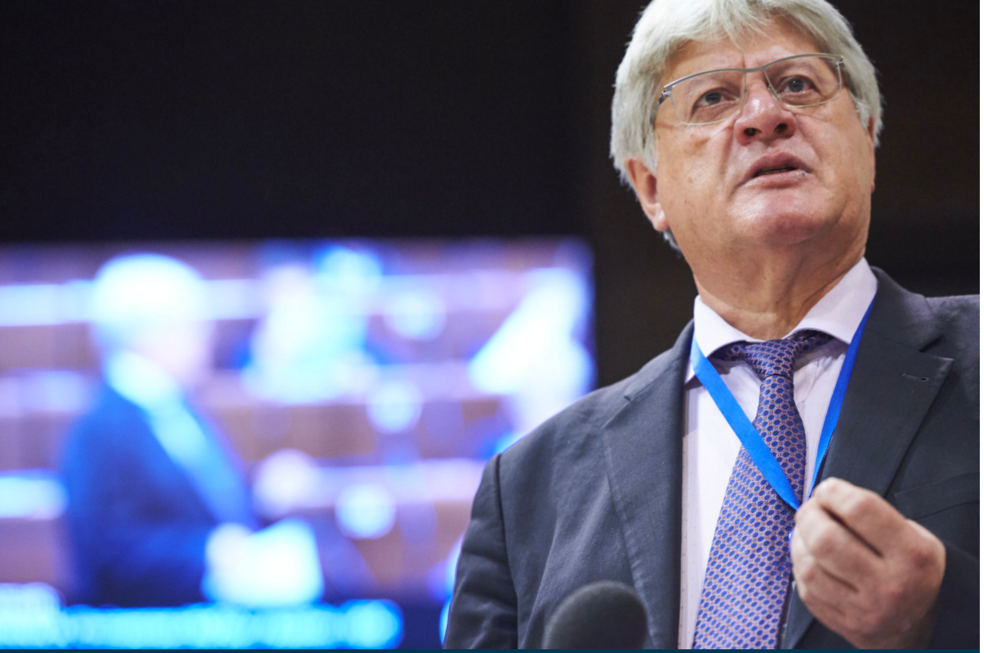
Austrian MP Prof. Stefan Schennach © Council of Europe Klara Beck
The simple fact of childhood innocence and a lack of responsibility for the misbehaviour of the child’s parents, one might imagine, are surely incontrovertible. But you’d be surprised. Or perhaps you wouldn’t. The English poet, William Wordsworth wrote “The child is father to the man”, but only to mean that childhood impressions lead on into adulthood and remain; in his case, he was talking about his childhood delight in rainbows, which had lasted into his mature years. But being the child of jihadi parents doesn’t mean he or she will grow up into either a lover of rainbows or a terrorist. Professor Schennach is very sure that, as the Roman satirist Juvenal put it, “a child is owed the greatest respect.” Schennach sits in Austria’s Upper House, the Federal Council, and admits on his own website that he has a number of goals: “I want to change Europe towards social union, to participate in shaping European politics in the sense of co-determination and solidarity and sustainable development, and to enforce democracy, the rule of law and human rights in Europe. Neoliberalism and social coldness in Europe must be pushed back and the struggle for youth employment made a top priority.”
Professor Schennach admits that, even within the hallowed walls of the Council of Europe Parliamentary Assembly, where human rights are held in unusually high regard, people shudder at the mention of Daesh (or IS or ISIS). “This urgent debate was necessary because every day, in the different refugee and detention camps, one or two children are dying,” he told me. It’s hardly surprising. At the end of May, some four thousand children were existing in fetid, filthy and disease-ridden camps in northeast Syria, without adequate food, clean water, medical care or education and suffering from disease, malnourishment, sexual abuse and endemic violence. Most of them are the children of the women who went to Syria as ‘jihadi brides’, many, perhaps most of them, European. Parts of the sprawling camps are effectively run by extremely radicalized women, the widows of hardened Daesh fighters from all over the world, who try to instill in the youngsters a hatred of all things western and also an urge to take up arms against countries that don’t adhere to their severe, puritanical version of Salafi Islam. If western countries are afraid of inviting committed jihadists within their borders by accepting back the fighters’ children, they’re going a funny way about it, allowing the children’s continued and intense radicalization. Islamic State ideology still thrives in the camps. “One thing is very clear,” says Schennach, “most of these children have European parents. Young girls, who went there the age of 15 or 16, have ended up there. We don’t know why. We don’t know what was happening in the social lives, how modern it was, and not all were Islamic, by the way. And then they got babies, sometimes from different men because they were married to one man and if one fighter died they got automatically a new man. I think it was not the selection of the ladies, and now we have this situation.”
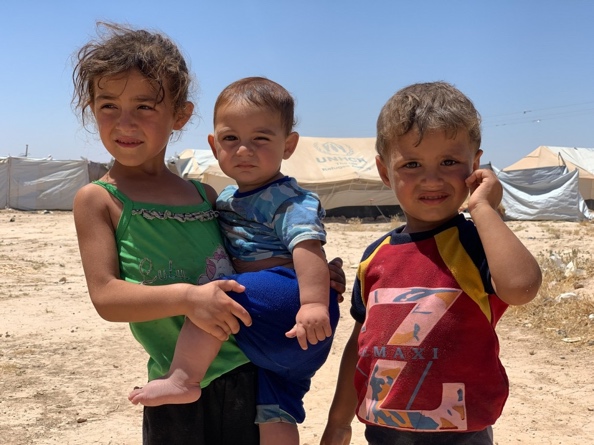
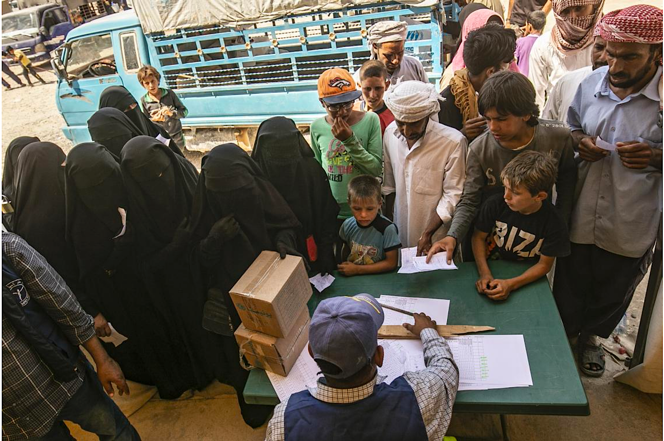
THE CAMPSIGHT FROM HELL
And the situation is truly awful. “Let’s have a look in one of the camps,” Schennach urged. “One of the famous camps is Al-Hol. Al-Hol is a camp in northern Syria, protected by Kurds. In this Al-Hol camp at the end of 2019, there were 72,000 residents, and 55% of the 72,000 are below the age of twelve, and of those 55%, 7,000 of them were clearly European citizens.” The issue made headlines in Britain when the Home Secretary at the time, Sajid Javid, refused to readmit Shamima Begum, one of three teenage girls who, in 2015, ran away from home in London’s Bethnal Green to marry jihadists. The issue arose when the war was over, ISIS defeated and Begum was nursing a newborn baby, not her first; her two children born earlier both died. Javid refused to admit either and the latest child died shortly afterwards. Legally, not all the children born to parents who are from a European country hold the right to citizenship. If that parent was stripped of citizenship before the child was born, or if the parent had been born elsewhere and was a naturalized citizen of that country, rather than holding citizenship by right of birth, then there is no legal entitlement to live in that country. But as long as western governments shirk their responsibilities towards the children, things can only get worse.
“In this situation, in the last three months,” Schennach says, “some countries took decisions, and I would like to highlight three countries that took back a lot. The first is Kosovo. Kosovo took 110 individuals. The second is Russia. Russia took over 122 children. And the third is Kazakhstan. Kazakhstan took over 534, nationals of Kazakhstan but the main group were kids.” Schennach smiles wryly as he says “Now let’s go to the western European states.” He laughed, but it was a bitter laugh. “Belgium six, but only after a Belgian court said they had to do it. But that’s six out of one hundred, about one hundred. France decided case by case, and they had a lot. But by the end of December they had taken seventy.” More recently, France has accepted a further ten children who were staying in refugee camps controlled by Kurdish forces. The French Foreign Ministry said they had been handed over to judicial authorities in France to be cared for by social services, although their precise locations remain secret. It is believed that they were especially young children, who were considered vulnerable, including three orphans and seven children of two mothers who had agreed to give them up. It’s thought this still leaves some 270 children of French Daesh fighters stranded in the Syrian camps. We must recall, of course, that Islamic extremists have killed more than 250 people in various attacks, such as the attacks on the Bataclan Theatre and the murders of staff at the satirical magazine, Charlie Hebdo. Meanwhile, says Schennach, other countries with less reason to hate jihadists, were more accommodating. “Bosnia and Herzegovina took 24 women and kids,” said Schennach. “Now Germany; we have over one hundred kids who are German.
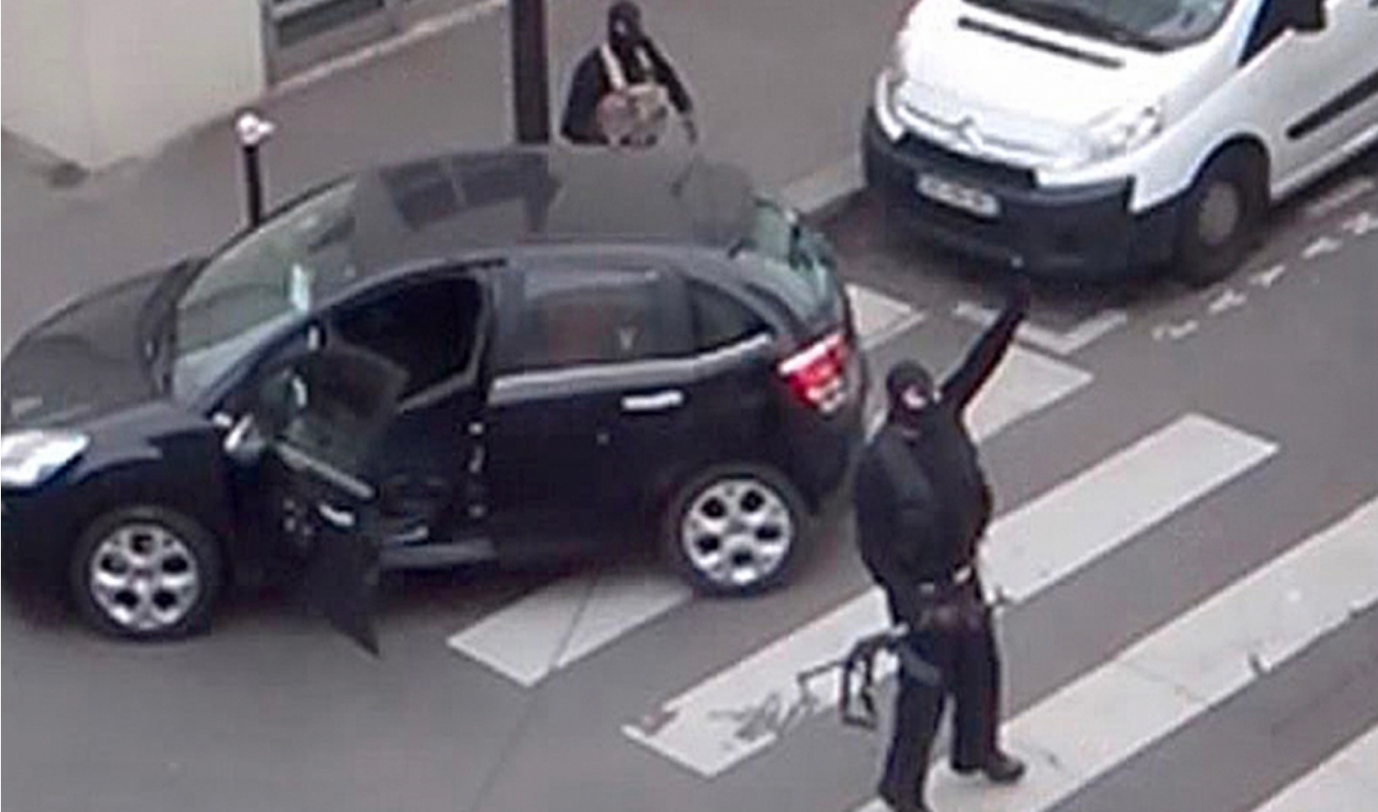
Germany only took four. Sweden: seven orphans. It was very clear those kids were orphans and they took seven. Austria – my country – and the Netherlands: each country took two. In both of those countries, grandparents asked for the children, their grandchildren. Denmark: one, but there are more than thirty Danish kids there.” It’s a dispiriting tale and Schennach doesn’t seem very hopeful. “We can only appeal to humanity and follow the Convention through all our member states.” As a point of interest, the United States also claims to have brought home some 15 children, according to the US State Department, although they won’t say how many remain.
Western countries are wary because the adults are suspected of being involved in some of the fighting and possibly in atrocities like torture and beheadings, but there is insufficient judicial evidence to bring them to trial, so they stay in the limbo of the camps, a drain on the Kurdish forces and unwanted by the home countries they denounced and where their presence would be seen as potentially dangerous. It is highly probable that most of them have not foresworn their allegiance to the caliphate that no longer exists, if it ever did. So if they cannot be put on trial for lack of evidence, neither can they be detained in prison in their original home country. No-one seems to have any sensible ideas as to what to do with them. But the most important thing, says Schennach and several NGOs, is to get the children out. Last year at the Al-Hol camp, which is horribly overcrowded and holding many times the number of refugees for which it was set up, 371 children died, according to officials from the Kurdish Red Crescent. Western governments, however, continue to sit on their hands, partly because it would be extremely difficult, and in some cases impossible, to confirm the children’s parentage. Furthermore, the camps are dangerous places for diplomats who are also concerned about separating the children from their mothers. The total number of children of western parents still living in the camps is thought to be around 900 but may be more. “This is urgent,” Schennach said. “Now we have the Covid time and I’m sure that in the Covid time people were dying and nothing was going on to save the situation. The NGO Save the Children agrees. “A COVID-19 crisis in Al Hol would be a children’s crisis. Children in the camp, many with already weakened immune systems or underlying health conditions as a result of living in desperate conditions during their formative years, may struggle to cope with this deadly virus. Suitable health services aren’t in place to adequately respond to children and their families. 43 thousand children continue to need education, child protection, and psychosocial support and we cannot fail to adapt quickly in response to the necessary control measures.”
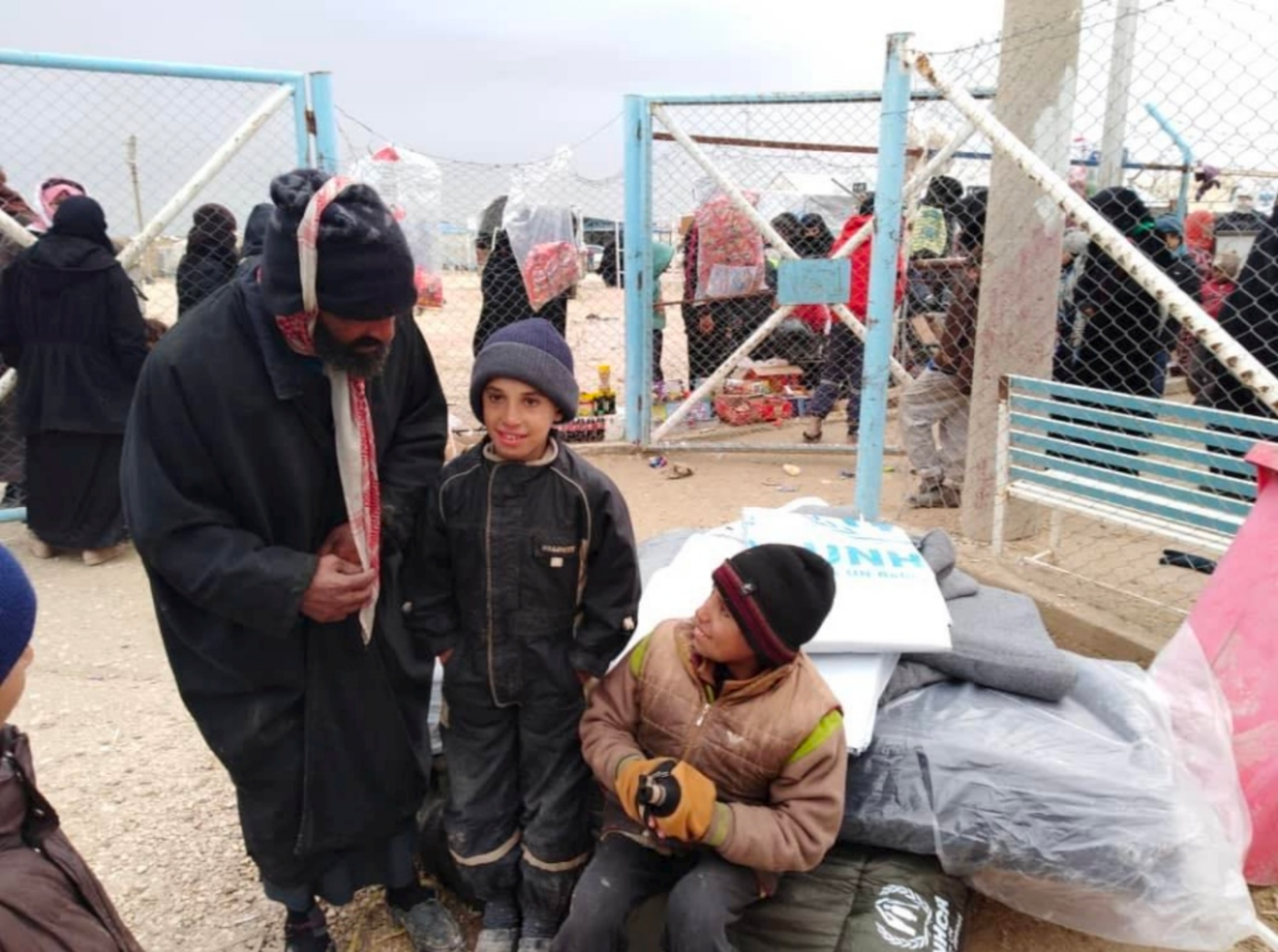
OURS, THEIRS, NOBODY’S
Schennach’s report began by saying that “The Parliamentary Assembly is appalled by the dire situation of children in Syria and Iraq whose parents, believed to be affiliated with Daesh, are citizens of Council of Europe member States. Most of these children are below the age of 12, stranded in squalid camps and detention centres and lack food, shelter from the elements, access to clean water, medical services and education.” So why won’t western countries allow these children, innocent of any crime and not facing any criminal charges, to return to the countries their parents left to fight for ISIS? One argument is that it might strengthen any surviving parents’ own rights to apply to return in order – in theory, at least – to reunite their family. Children have a right to access to their mothers under United Nations conventions. Others say that, because one or both parents chose to abandon their country of birth or of adoption to fight for an enemy cause, hostile to Western European values, their children forfeit their rights to retain their nationality, too. But that cannot be legal, however fervently argued.
Under the 1954 UN Convention on Statelessness the legal definition of a stateless person is clear: someone who is “not recognised as a national by any state under the operation of its law”. However, that person has the right to many things, including education, employment and housing, along with the right to identity, travel documents and administrative assistance. The 1961 UN Convention goes further by aiming to reduce statelessness by establishing an international framework to ensure the right of every person to a nationality. According to the UNHCR, “It requires that states establish safeguards in their nationality laws to prevent statelessness at birth and later in life.” It also establishes that children must acquire the nationality of the country in which they are born if they do not acquire any other nationality. I’m not sure how that could work in war-torn Syria, in territory controlled by Kurds and invaded by Turkish forces, when the parents would probably argue that they were born in the now-extinct Caliphate, or the Islamic State of Iraq and al-Sham [Syria], to give it its formal name.
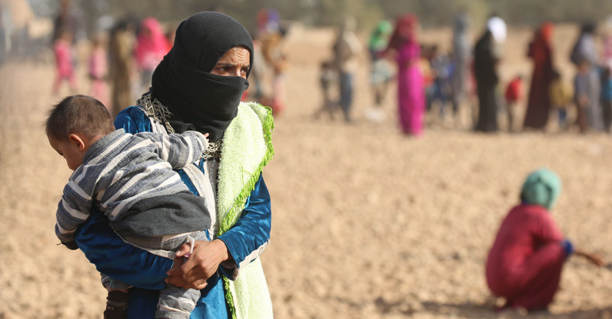
It was supposedly ruled by a caliph – a Khalifa, or deputy to Mohammad who rules according to the Qur’an. It was a state that never really existed and now is no more and is certainly not a great place in which to claim nationality. However, if they can put up with a country ruled by Bashar Al-Assad, then there is another option: Syrian nationality law contains a safeguard against statelessness at birth whereby a foundling (an abandoned infant), a child born in Syria to stateless parents, or a child born in Syria who does not acquire another nationality should be considered Syrian under Articles 3(C) and 3(D) of Legislative Decree 276. However, these safeguards against statelessness at birth are not systematically implemented.
It’s all a total mess, with the countries supposedly most committed to upholding human rights and the rights of the child apparently washing their hands of the whole business in the hope that it will somehow disappear while knowing that it won’t. And there’s another point about Syrian law that should be applied here: Syrian nationality law allows a citizen to renounce their Syrian nationality voluntarily, but only following acquisition of a different nationality. Where does that leave supposedly stateless children and their mothers? That’s the question nobody in government is answering, although Schennach has some firm ideas. “It is very clear that those kids are citizens of our countries, but there is also the Convention that the child has the rights to his parents.” Especially, he stresses, the children have a right to their mothers. “If you don’t do it by humanitarian or legal means, then think that all the kids growing up in that atmosphere will be abused in a different way. And if you are thinking of fighting against terrorism, then you have to do it, because it’s a hopeless situation, because those children have no education, no peaceful surroundings, and there are no families which help the child to grow up.” The future prospects of these children are bleak. “In the end, and we see this in Gaza and other places, young kids are growing into radicalism.”
The report reminded members of the Parliamentary Assembly that the obligations are not optional. It states that “The Assembly underlines that these children are neither responsible for the actions of their parents nor for the circumstances in which they find themselves. In addition, as stipulated by the United Nations Convention on the Rights of the Child (UNCRC), the Assembly underlines that children are rights holders in their own capacity and hence their rights cannot be undermined by the actions of their parents.”
He made the point when he proposed his resolution to the Assembly in January, 2020: “For whatever reason, young women from Europe, for example, have set out to marry in the territory of the so- called IS and have children. These children are not guilty and many of these mothers come from almost all our member states. Therefore, the member states also have a responsibility towards children who actually have a mother from one of our member states.”
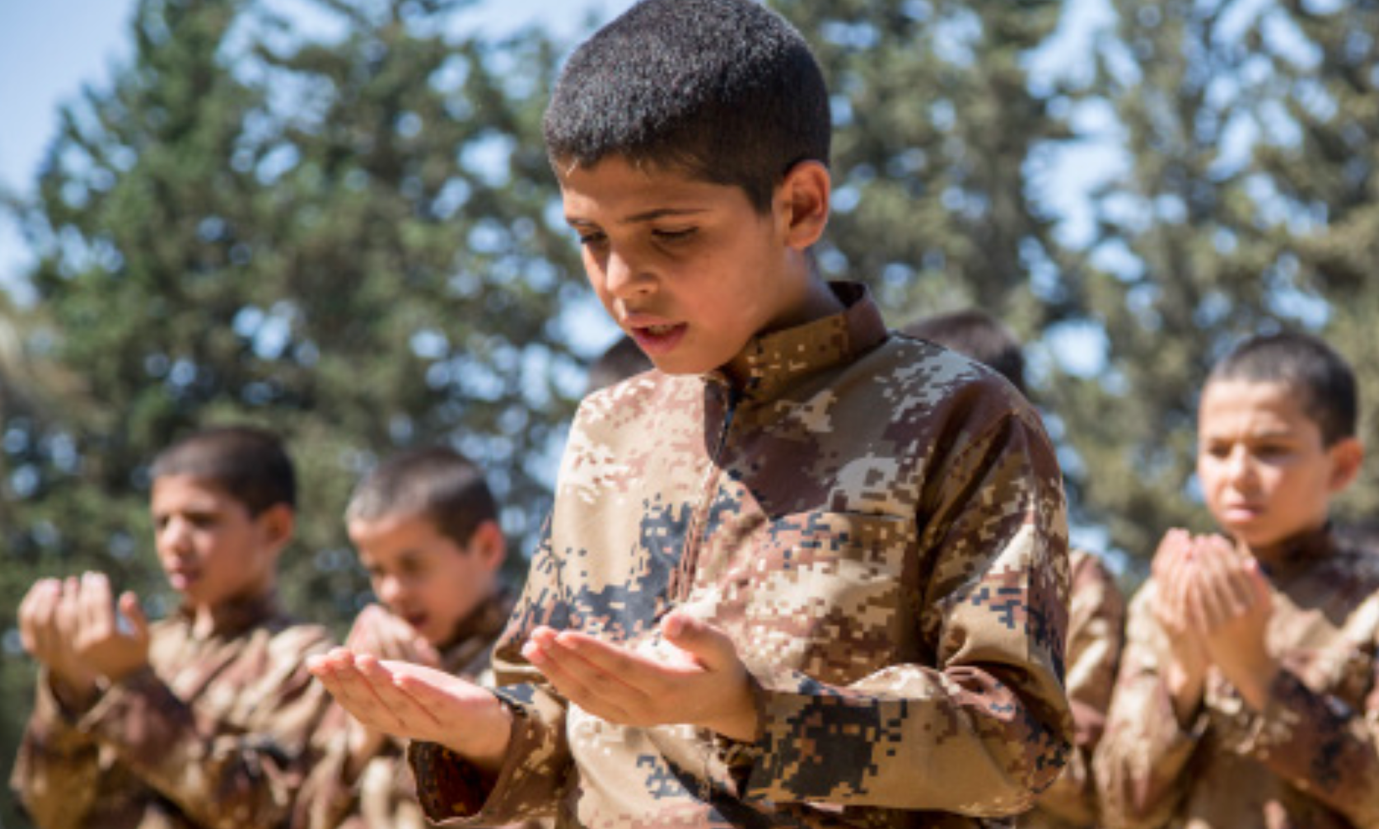
After massive support in the Committee on Social Affairs, Health and Sustainable Development, Schennach won overwhelming support in the Assembly itself. He pointed out that “In Camp al-Hol, which is currently under Kurdish control, together with the democratic forces of Syria, there are more than 60,000 people, half of whom are under the age of 12. We have to get these children out, we have to integrate them, we have to protect them and we have to hope that there is a possibility here too; as was the case with two Austrian children, for example, where the grandparents said, ‘we want our grandchildren back’. In the case of Germany, too, I followed this very closely when a farmer wanted his daughter’s children back and fought for them.”
UNWELCOME HOME
Governments have to be mindful of public opinion if they ever want to be re-elected, and the public have little sympathy with Daesh, following the well-evidenced reports of torture and brutality. “All of this needs to be investigated and, if young people have been involved in criminal activities, they have the right to a fair and due process of law, including under a country’s juvenile justice code.” Surviving witnesses from what they called the caliphate are thin on the ground, which would make any sort of trial very difficult to hold. Schennach is dismissive of any fears of upsetting citizens who are understandably concerned about what Daesh did. “To follow the convention, to follow what is right, is nothing to do with public support. These are citizens of your country and you have to do something.” Even so, public feelings and apprehensions cannot be entirely ignored, and nor were they in the debate on the Schennach Report. Dunja Mijatović, Council of Europe Commissioner for Human Rights, accepted the concern over admitting those with ISIS connections. “I also know that the return of these European citizens to their home countries sparks fear and raises legitimate security concerns,” she told the Assembly. “This is something that we should accept and also be aware of. But children stranded in the camps of Northern Syria are not responsible for their parents’ decision to join these groups. Letting the children of suspected ISIS fighters die there will not heal the wounded souls of the victims of terrorism, nor will it bring more security in Europe or anywhere else.” Ms. Mijatović made it clear that she is no stranger to the issue, which is a matter of grave concern to her. “In the last eight months I have discussed this delicate issue with a wide range of interlocutors: legal experts, children’s ombudsmen, civil society representatives, security and intelligence people. These discussions have reinforced my deep conviction that repatriating these children is the only way forward. Clearly this is from a human rights perspective, which is the part I’m mandated to bring to your attention. But interestingly, many in the intelligence and security community also support it, repatriation, to better exercise any necessary control or implement disengagement or rehabilitation measures.”
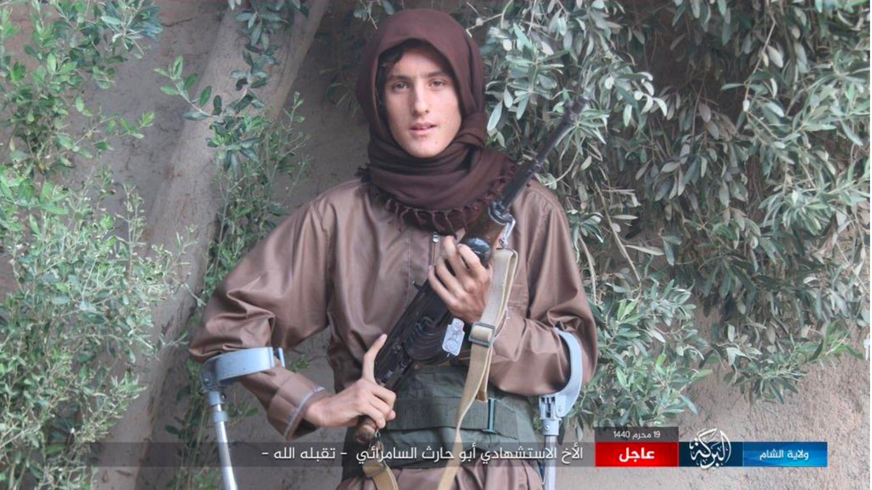
Needless to say, not everyone agreed. Martin Hebner from Germany argued that the report would prove a ‘Trojan horse’ for terrorists. “Please bear this in mind: with this the children will become nothing more than a return ticket for murderers. This is unacceptable.” For him, the children must stay where they are; he also disputes that all those under the age of 18 can be counted as children. “The penultimate chapter says something about risks. At first, I thought there were some risks involved: what about our families and children? Nothing. To them, they are not even worth a thought. There is no consideration whatsoever for them, no consideration at all for our citizens, and that is why this motion is so completely out of the question.” Markus Wiechel of Sweden agreed, although he acknowledged why the Assembly was displaying sympathy for the stranded children. “However, we must also be aware of the major consequences and risks involved in resettling children of terrorists in this way. We must look carefully for alternative solutions. The reason is that many of these children are brainwashed by their parents and the Islamic State. In some cases, they have been trained to execute other human beings.” He cited examples of murders carried out by 4-year-olds to support his case. But it was a minority view: the report was adopted by 80 votes to 10, with 10 abstentions. Just before the vote, Schennach spoke of his appreciation for the debate itself, on the final day of the January 2020 Parliamentary Assembly session, which was also to be the last for some time in view of the coronavirus pandemic. “I would like to thank the Social Committee, which unanimously adopted this resolution, and no amendment was tabled before the deadline. In this respect, I am somewhat saddened by a few dark speeches here; especially in the House of Human Rights, but I did say at the beginning of the debate: let us try and get away from the issue of parents and see only the best interests of the child.” Schennach was especially appreciative of a speech by Spanish member Jokin Bildarratz, who had pointed out that leaving the children in their present circumstances could have both medium- and long-term consequences. “We can’t continue to say that they should be kept well away from our countries. Whenever it comes to human rights, we simply can’t do that. We’ll be talking about the United Nations Convention on the Rights of the Child Article 22. We need to talk about the situation which prevails in so many of these camps where thousands and thousands of children are dying because of the indirect consequences of war: the lack of food, malnutrition, lack of health care, lack of sanitation. The supreme interests of these children should be the overriding concern for all of us. The consequences for these children are enormous in both the short- and the long-term. And we should not forget that.”
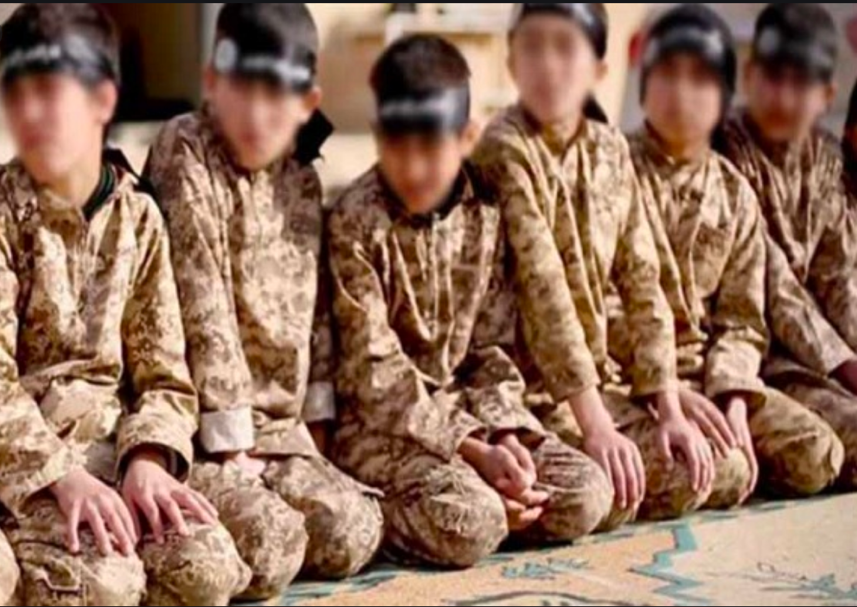
When I interviewed Professor Schennach, he explained why his report was so urgent. “Every day,” he said, “one or two kids died. Died by anaemia, died by diarrhoea, or by (alimentary or respiratory) tract infection. There is no support there and the idea of this resolution that I made was to save children’s lives, and to ask, to oblige the Member States of the Council of Europe to take over their responsibilities for those kids.” The resolution itself also reminded the Assembly that the Member States have ratified the UNCRC and have thus “undertaken to protect all children and to take all possible steps in practice to ensure that children affected by armed conflict benefit from protection and care. The United Nations, its Security Council and its agencies have all reiterated that children whose parents are believed to have been affiliated with Daesh should be considered victims first and foremost.” Of course, it’s impossible to predict how these children will view their mothers and fathers in the years to come. It’s worth remembering what the Irish playwright Oscar Wilde wrote in ‘A Woman of No Importance’ (1893): “Children begin by loving their parents; after a time they judge them; rarely, if ever, do they forgive them.” Wilde, though, was seldom serious.
We should, perhaps, remind ourselves of how this whole sorry situation came about. In 2014, Islamic State (IS), as it called itself, seized a territory roughly the same size as Great Britain, which spanned the Syria-Iraq border and declared it an Islamic caliphate. Tens of thousands converged on it from around the world, some to fight, some to care for the fighters. Many from western countries took children with them or gave birth once they arrived, until an alliance of American and Kurdish soldiers defeated the jihadis, dismantling their new ‘state’. The men were locked up in makeshift prisons where, for the most part, they remain. The women and children were herded into camps designed – if that’s the right word, given their rough and uncivilised state – for a far smaller number of detainees. Women regularly escape, nobody seems to know where to, and some have brought mobile phones and weapons back to the camps, making them into breeding grounds for radical thought, as well as unlikely sources of the spread of radical jihad.
On the 18th anniversary of the 9-11 attacks on the World Trade Centre in New York, a group of US security experts warned in an open letter that life in the Syrian camps “fuels the Salafi-jihadist narrative of grievance and revenge that has proven so potent in recruiting followers.” The New York Times recently cited the case of 7-year-old Taymia (surname withheld), who was repatriated to France in the midst of the Covid-19 pandemic, because she has a double heart defect. She had grown weak and emaciated and after her mother contacted relatives in France, her case was taken up by human rights lawyers. By the time the French government sent a medical jet to bring her back for treatment in Paris, she was struggling to breathe and her hands and feet had swollen. There is no prospect of her siblings being allowed to join her and her father and brother were killed, the boy having been shown in an ISIS propaganda video murdering a prisoner. Taymia’s mother told the New York Times that she doesn’t want her remaining children – or anyone else’s children – to grow up in the camps. “The kids are going to be worse than their fathers,” she said. Human rights groups agree, arguing that leaving children in Syria threatens their mental and physical health and their indoctrination with Islamic State ideology, which is widely followed in the camps, possible creating a new generation of violent jihadists.
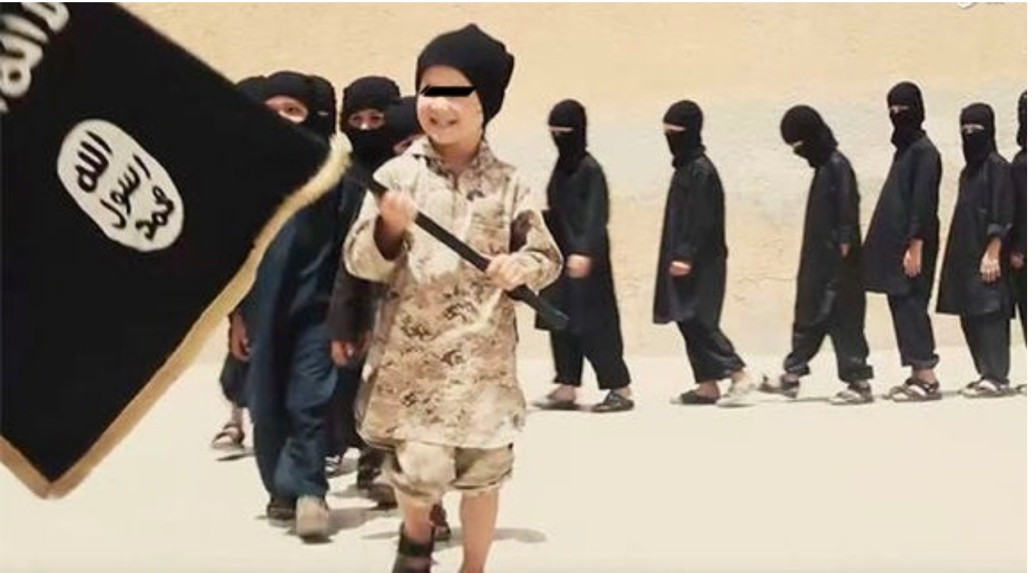
There’s another reason why children should not be left in the camps: Covid-19. “The number of confirmed cases in Iraq,” says the UN Refugee Agency, the UNHCR, “doubled over the period of a week in early June, and since is averaging at around 1,100 new positive cases per day.” It’s harder to be certain of anything in those parts of Syria playing unwilling host to the remaining relatives and supporters of Daesh. At the end of May and in response to the coronavirus, the Syrian cabinet announced that all public sector bodies would resume services as of 1 June, with “full adherence to Covid-19 prevention measures”. Nobody expects this to include Idlib, the last rebel stronghold, nor the refugee camps, which are under the over-stretched care of the Kurdish forces. They, certainly, want the children (and preferably their parents and other adult relatives) to go somewhere else. They are just too numerous for the Kurds to cope with and their many needs are well beyond the capacity of the Kurdish forces to supply. According to the ReliefWeb website, “the population of Al Hol surged from around 10,000 at the start of 2019 to more than 73,000 people by May 2019 – a 680% increase. Severe overcrowding in the camp – and notably in the Annex where families of foreign nationalities with real or perceived ties to ISIS live – would make social distancing or self-isolation practically impossible in the event of a coronavirus outbreak.”
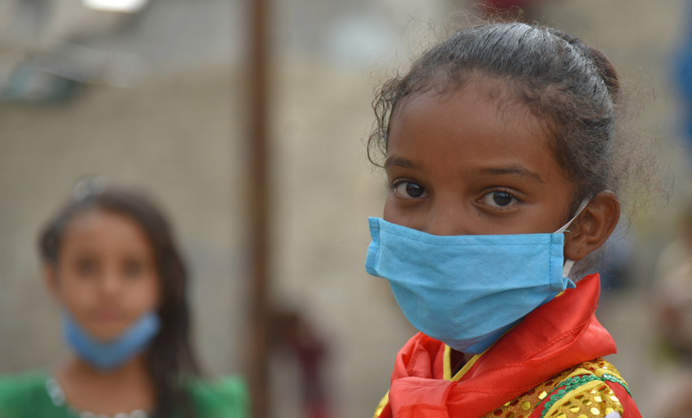
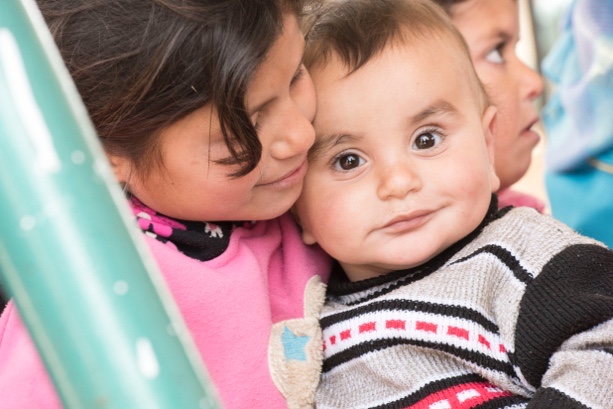
Will the children be allowed home? Most are still surviving – just about – in the camps, but Schennach hasn’t given up altogether; I suspect he never will, however hard it is to persuade governments and their people that it’s the right thing to do. “Switch off in your brain that there is a relation to IS or Daesh,” he said to me, “because no child in the world, not one child in the world, is responsible for their parents, and what their parents are doing, and not one child is responsible for the surroundings in which they are born. So we have to see only the child, and if you are not willing to follow me over how important it is to save the child, so you can come from another perspective. All that we are doing to reintegrate those children is also a counter-terrorism action, because when children grow up in such an atmosphere: abused, not educated, together with criminal persons, then we are looking at the next generation (of terrorists) on the ground, and that we should stop.” Schennach is determined to save the children of the jihadis in time to turn them away from the doctrines of their parents. “It’s not only the physical,” he said, “what they need is psychological help. What they need is social integration. This is not so easy, I know; we have seen this with children from Syria that we have in Austria. For that you must take much more money in your hand for the social and psychological integration, and also to help overcome the trauma they have had.” But there is always hope to be found somewhere, although it’s hard to find where. Some four million Syrians fled their homeland and still live in neighbouring countries. The fight to retake all the territory is still being waged by Bashar Al-Assad and his Russian and Iranian allies. The most hopeful sign, perhaps, is that Schennach’s report was so overwhelmingly adopted by the Parliamentary Assembly. Its members – or most of them, at least – are on the children’s side. That must mean something.
JG
Click here to read the 2020 July edition of Europe Diplomatic Magazine


